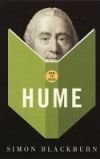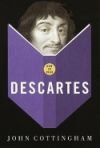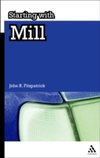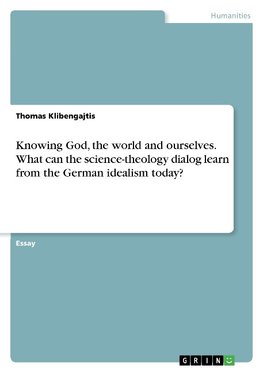
-
 Anglický jazyk
Anglický jazyk
Knowing God, the world and ourselves. What can the science-theology dialog learn from the German idealism today?
Autor: Thomas Klibengajtis
Essay from the year 2008 in the subject Philosophy - Theoretical (Realisation, Science, Logic, Language), , course: 12 Konferenz der European Society for the Study of Science And Theology (ESSSAT) zum Thema "How do we know? Understanding in science and theology",... Viac o knihe
Na objednávku, dodanie 2-4 týždne
14.76 €
bežná cena: 16.40 €
O knihe
Essay from the year 2008 in the subject Philosophy - Theoretical (Realisation, Science, Logic, Language), , course: 12 Konferenz der European Society for the Study of Science And Theology (ESSSAT) zum Thema "How do we know? Understanding in science and theology", Sigtuna, Schweden, Mai 2008., language: English, abstract: The aim of this paper is to show that there is no significant difference between knowledge and understanding in science and religion, since the epistemic approach in both these fields is idealistic. After presenting the meaning of the term 'real', the idealistic approach of Kant, Fichte and Schelling will be adduced and its relevance for the contemporary science will be demonstrated. Subsequently the term 'scientific realism' will be introduced together with some ideas proving that it should be considered as idealism sui generis.
Then some examples from the history of science will be given proving that many discoveries were preceded by an a priori idea. In the last part of the paper the human I will be depicted as the predominant 'space' of the religious experience. Since a human can discover God within him/herself, s/he is also able to discover God in and within the exterior world. Since, both in science and religion, knowledge and understanding originates from the I, there is no significant difference between scientific and religious approach.
- Vydavateľstvo: GRIN Verlag
- Rok vydania: 2016
- Formát: Paperback
- Rozmer: 210 x 148 mm
- Jazyk: Anglický jazyk
- ISBN: 9783668321878
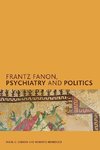
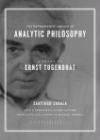
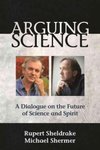
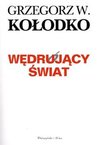

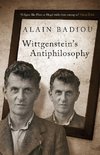

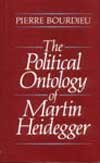
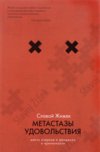
 Ruský jazyk
Ruský jazyk 